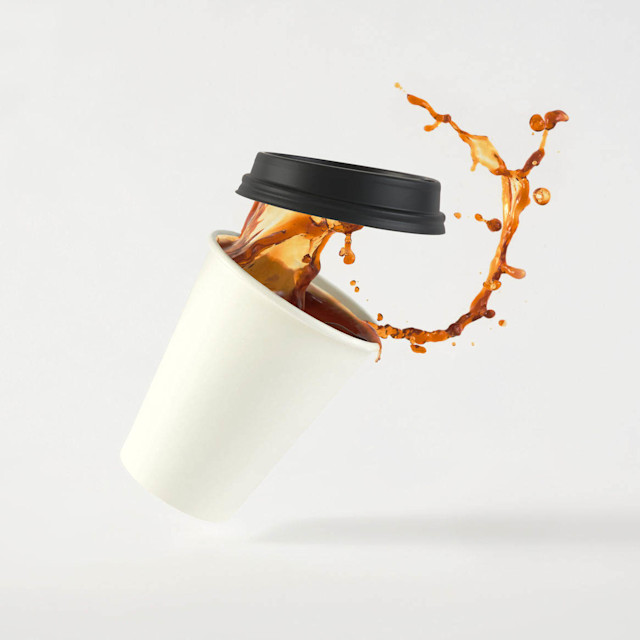It doesn’t technically give you energy.
Most people consider caffeine a guilty pleasure of sorts. “They say, ‘I know I should give it up,’ but they don’t necessarily know why,” explains Kate Solovieva, master coach at Precision Nutrition in Toronto. “We assume that if we love something that much, it can’t possibly be good for us.”
All of the stimulant’s supposed negative side effects make people believe even more strongly that they should slash their intake. But its drawbacks, and even its benefits, aren’t so straightforward. Furthermore explored a few common caffeine myths so you can drink your morning cup in peace.
The myth: Caffeine gives you energy.
The verdict: Mostly false.
Carbs, protein, and fats are fuel-giving macros. Caffeine, on the other hand, only makes you feel more uppity, Solovieva says. It does this by blunting adenosine’s effects in your system. When the neurotransmitter, which is produced when your body breaks down food, binds to specialized receptors, it makes you groggy.
Caffeine blocks these receptors so adenosine can’t send you sleepy signals. Unless they contain other ingredients like sugar, coffee, black tea, and other caffeinated drinks don’t really provide energy, she explains.
The myth: You should ingest caffeine right before your workout.
The verdict: It depends on your definition of “right before.”
You won’t get much of a boost if you down an espresso immediately before you train, says Jonathan Dick, Tier X coach, master instructor, and nutrition specialist at Kensington in London. It can take up to 30 minutes to feel the effects.
To use the stimulant as a performance-enhancer, aim to get about 200 milligrams of caffeine one hour before you exercise. In one University of Illinois study, cyclists who timed their intake in this way described their workouts as significantly less painful than did those who took a placebo did.
The myth: Coffee is the best source of caffeine.
The verdict: Mostly false.
If you’re in it for caffeine and caffeine alone, isolated forms are the way to go. “It seems to have a stronger effect when consumed in its anhydrous, or dehydrated, form than it does in liquids,” Dick says. In other words, you should take it in capsules, like the cyclists in the above study did.
Caffeine anhydrous is an over-the-counter supplement. If you choose to take it, make sure the product is tested by third parties and consult your physician before adding it to your routine.
The myth: Coffee is dehydrating.
The verdict: Mostly false.
“Caffeine can have a diuretic effect, which means it increases the need to urinate,” Dick says. But, he adds, you would need to drink an inordinate amount to lose enough fluids for it to be potentially dehydrating.
Take a recent University of Birmingham study as proof. Researchers examined the hydration levels of 50 men who downed multiple coffees per day and found the beverage was just as hydrating as water is.
You can count all caffeinated beverages toward your daily water intake as long as you consume no more than six servings, Dick says. That’s the highest amount studied, so it’s unclear whether eight or 10 cups would tip the scales toward dehydration.
The myth: Pregnant women should avoid caffeine.
The verdict: Mostly true.
Research has long shown that drinking too much caffeine while pregnant is associated with low birth weights and may trigger a decline in heart health for the baby. However, most of the research on this topic comes from animal studies or observational ones, which are notoriously unreliable, Solovieva says.
The American College of Obstetricians and Gynecologists says it’s safe to drink up to 200 milligrams of caffeine per day from conception to labor. That said, caffeine content varies depending on the brand and roast, making it difficult to know whether you’re sticking to that max, Solovieva says. “For a lot of women, it’s just less stressful to swear off caffeinated beverages entirely.”
The myth: Caffeine is bad for your heart.
The verdict: False—for healthy adults.
A recent review of more than 300 studies shows intake isn’t associated with heart disease, irregular heart beats, or heart failure. The researchers say if you’re healthy, you can safely drink up to 600 milligrams of caffeine per day, which you’ll get from about six cups of coffee or 15 cups of black tea.
In fact, getting the stimulant from coffee may have protective effects. Keep your intake between three and five daily servings and the habit could lower your risk of heart disease by 15 percent. This could be thanks to the beverage’s antioxidant properties. For the biggest benefits, choose a light roast, which contains more antioxidants than darker varieties do.
